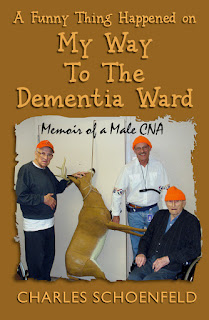by Jennifer Brush
I am very pleased that I was asked to participate in this opportunity to bring more awareness to Alzheimer’s disease and to the wealth of resources written by care partners that are available to help families. Although each person’s journey with dementia is different, we can all learn from one another and find support in knowing that we are not the only person walking on this difficult and rather bumpy path.
I am a speech-language pathologist, researcher, and author of five books about dementia. In addition, I have family members living with Alzheimer’s disease, so I have a good understanding of both the clinical and emotional issues that challenge all of us who have a loved one with cognitive impairment. What I find most commonly is that individuals and families feel helpless, scared, and uninformed. They are frequently handed a diagnosis with no further support. Although there’s a lot of information now available on the internet for people to read about dementia, family members still have a real need for practical advice to help them get through the day.
For years I have provided information verbally to families during one-on-one coaching or therapy sessions and I always wanted something simple and approachable that I could hand them and say, “I understand that you are stressed and overwhelmed and it’s okay if you don’t remember everything I’m telling you to today. Take this book home and read a few pages each day and try some of the strategies I’ve suggested.” So many of the books about dementia are extremely depressing. I wanted to write something that was hopeful and helpful, something that made life better and more manageable. So, I decided to write I Care with my friend and colleague Kerry Mills to provide families with practical, research-based strategies that are easy to implement.
The best advice I can give care partners and families is very simple:
- Give the people with dementia every possible opportunity to make choices and have control over their life. Every time we do something for them, we are essentially withholding opportunities to maintain their dignity from them.
- Focus each and every day on the individuals’ capabilities that remain rather than on what is lost.
- Stopping trying to change people with dementia, just love them and accept them for who they are.
- Take care of yourself by getting help with care partnering, doing things you enjoy, and making your emotional and spiritual health a high priority.
About the Author
Jennifer Brush, MA, CCC/SLP is an international speaker, consultant and researcher in the area of dementia care and the co-author of five books, including I Care: A handbook for care partner of people with dementia. I Care is a great resource to help families dealing with the daily struggles of caring for a loved one with dementia. To learn more visit www.BrushDevelopment.com




















